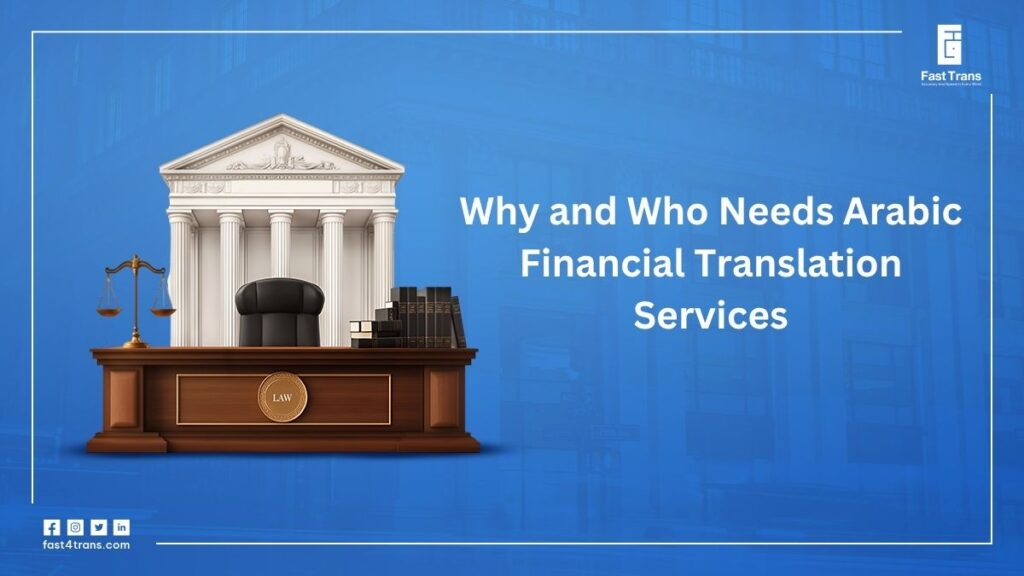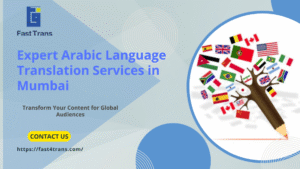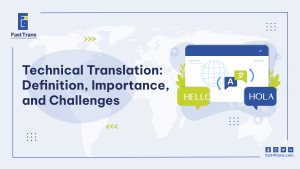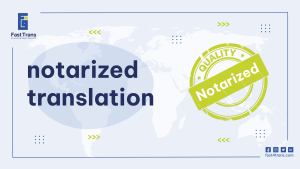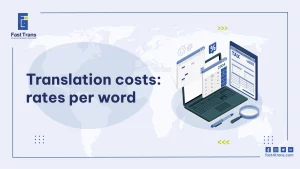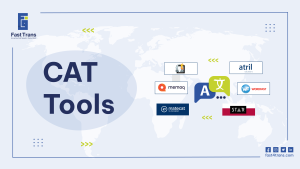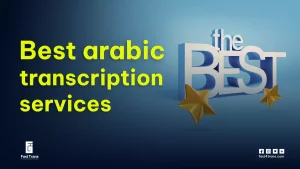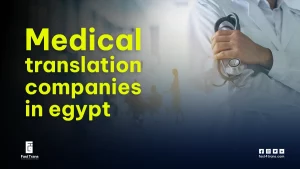In today’s interconnected economy, accurate financial communication is more than just a business necessity; it is the backbone of trust, transparency, and compliance. Whether it’s multinational corporations reporting to shareholders, banks managing cross-border transactions, or investors analyzing market opportunities, precision in financial language can make the difference between success and costly misunderstandings.
Arabic plays a central role in this landscape. As one of the world’s most widely spoken languages, with over 400 million speakers, Arabic dominates the Middle East and North Africa (MENA), a region that has become a global hub for finance, investment, and trade.
Why Arabic Financial Translation Matters
In the financial world, accuracy and clarity are non-negotiable. A single mistranslation can damage credibility, cause regulatory setbacks, or result in significant financial losses. For businesses operating in or expanding to the MENA region, professional Arabic financial translation is not just a support service; it is a strategic necessity.
1. Accuracy is Critical
Even the smallest misinterpretation of financial data can result in serious consequences, ranging from compliance violations to financial losses or even legal disputes. Precision in translation ensures that numbers and terminology are represented exactly as intended.
2. Regulatory Compliance
Many Arab countries mandate that financial statements, tax filings, and audit reports be submitted in Arabic. Professional financial translation helps businesses meet these legal requirements and avoid penalties or rejection.
3. Trust & Transparency
Clear and accurate financial communication builds confidence among clients, investors, business partners, and regulatory bodies. When documents are presented in flawless Arabic, it signals professionalism and commitment to transparency.
4. Global Business Expansion
For international companies seeking to enter or grow in the Middle East, translating financial documents into Arabic is essential. It ensures smooth business operations, better stakeholder engagement, and stronger local market presence.
Key Financial Documents that Require Translation
Financial translation covers a wide range of critical documents that businesses, investors, and institutions rely on. Each type of document carries legal, regulatory, and financial implications, making professional translation essential. Some of the most important include:
1. Annual Reports & Financial Statements
These documents provide stakeholders with a clear overview of a company’s performance. Accurate translation ensures that investors, regulators, and partners in Arabic-speaking markets fully understand the company’s financial position.
2. Tax Filings and Audit Reports
Governments in the Middle East often require these documents in Arabic for regulatory compliance. Errors or omissions in translation can lead to penalties, delays, or even legal disputes.
3. Bank Statements and Loan Agreements
When dealing with cross-border financing, loan applications, or credit evaluations, precise translation of bank documents ensures transparency and prevents misinterpretation of financial obligations.
4. Investment Reports and Fund Prospectuses
Investors need complete and accurate information before committing to opportunities. Translating these reports into Arabic allows local investors to assess risks and returns with full clarity.
5. Insurance Policies
Insurance documents are legally binding contracts. Accurate translation guarantees that both insurers and policyholders fully understand coverage details, terms, and conditions.
6. Contracts and Shareholder Agreements
These are at the heart of business relationships. Translating them into Arabic ensures that all parties involved clearly understand their rights, responsibilities, and obligations, reducing the risk of conflicts.
Who Needs Arabic Financial Translation Services
Financial translation is not limited to one industry; it plays a vital role across multiple sectors that deal with sensitive, high-stakes financial documents. From global corporations to local regulators, different stakeholders depend on accurate Arabic financial translation to ensure compliance, clarity, and trust. The key groups that benefit include:
International Corporations:
Companies expanding into the Middle Eastern market rely on financial translation to localize reports, contracts, and statements, ensuring smooth entry and operations.
Banks & Financial Institutions:
For cross-border transactions, loan agreements, and compliance reporting, accurate Arabic translation is essential to meet regulatory requirements and maintain trust.
Investors & Venture Capitalists:
Translation of investment reports, fund prospectuses, and financial analyses helps investors accurately evaluate opportunities in Arabic-speaking markets.
Government Agencies & Regulators:
Authorities often require financial documents in Arabic to ensure compliance with national laws and auditing standards.
Audit & Accounting Firms:
These firms handle bilingual reporting for clients operating in both local and international markets, making precise translation a necessity.
Law Firms:
During mergers, acquisitions, or financial disputes, law firms depend on accurate financial translation to avoid misinterpretations and ensure legal clarity.
Challenges in Arabic Financial Translation
Translating financial documents into Arabic is far from straightforward. It requires not only strong linguistic skills but also deep financial expertise and cultural awareness. The main challenges include:
1. Complex Financial Terminology
Financial documents are filled with specialized terminology that requires both linguistic precision and subject-matter expertise. A mistranslated term can completely alter the meaning of a statement.
2. Differences in Accounting Standards (IFRS vs. Local Regulations)
While many companies follow International Financial Reporting Standards (IFRS), some Arab countries apply local accounting frameworks. Translators must understand both systems to ensure accurate and compliant translations.
3. Cultural and Linguistic Nuances
Arabic is a rich and diverse language with regional variations. Translators must be careful to use the appropriate terminology and style that resonates with the target audience while maintaining clarity and professionalism.
4. Confidentiality and Data Security
Financial documents often contain highly sensitive information. Ensuring strict confidentiality and secure handling of data is a major challenge and a top priority in financial translation.
Read Also: Translating Documents for USCIS – A Step-by-Step Guide
Qualities to Look for in a Financial Translator
Given the high stakes, choosing the right financial translator is critical. The translator must combine linguistic excellence with financial knowledge, ensuring that every document is precise, compliant, and trustworthy. Some of the most important qualities include:
1. Native-Level Arabic Proficiency
A strong command of Arabic, including formal and financial terminology, ensures that translations are accurate, professional, and culturally appropriate.
2. Expertise in Finance and Accounting
Financial translation requires more than language skills; it demands knowledge of accounting principles, reporting standards, and financial terminology to avoid costly errors.
3. Familiarity with International and Local Standards
A qualified translator should understand both international frameworks, like IFRS, and the specific regulations of Arabic-speaking countries, to deliver compliant translations.
5. Attention to Detail
In financial documents, even a misplaced digit or mistranslated term can have serious consequences. Precision and accuracy are essential qualities.
6. Confidentiality and Professional Ethics
Since financial documents often contain sensitive or private data, translators must adhere to strict confidentiality and ethical standards to protect client information.
Read Also: Translating Birth Certificate for Migration – Full Guide
Professional Arabic Financial Translation Services by Fast Trans
At Fast Trans, we understand that financial translation is more than just converting numbers and words; it is about delivering accuracy, compliance, and trust. Our specialized Arabic financial translation services are designed to support businesses, investors, and institutions operating in or expanding to the Middle East and North Africa.
Contact us today via our official website
What Our Customers Say
Since the translation project is theirs, we encourage the clients to discuss every stage of the process.
You can check our clients’ comments for yourself at Google Reviews.
Conclusion
In today’s fast-moving global economy, the importance of accurate financial translation cannot be overstated. For businesses and institutions operating in the Middle East and North Africa, Arabic financial translation is not just about language; it is about compliance, precision, and trust. From corporations and banks to law firms and government agencies, every stakeholder relies on flawless translation to make informed decisions and maintain credibility.
By partnering with professional providers like Fast Trans, organizations gain more than a service; they gain peace of mind. With a team of expert linguists and finance specialists, Fast Trans ensures every document is accurate, secure, and culturally aligned, helping businesses expand with confidence, meet regulatory standards, and build lasting trust in the Arabic-speaking market.

